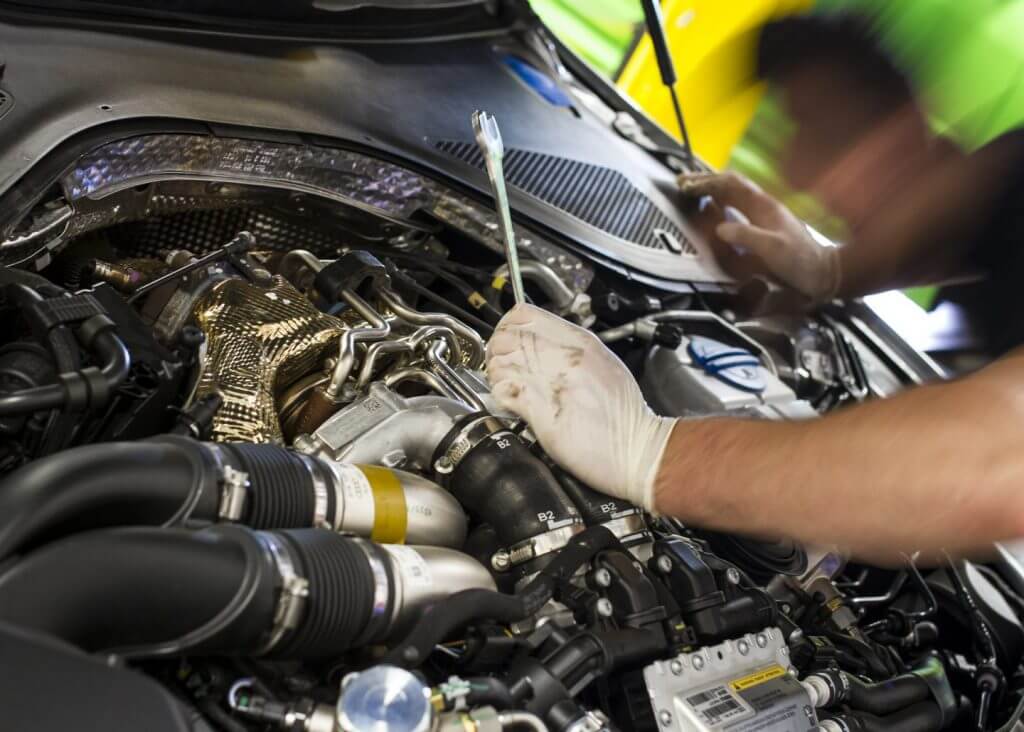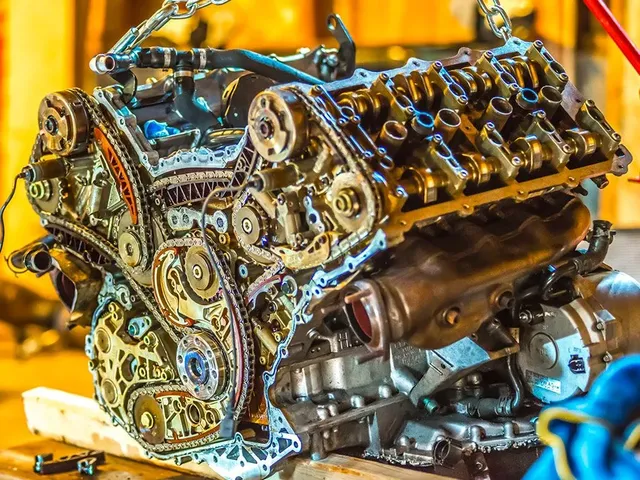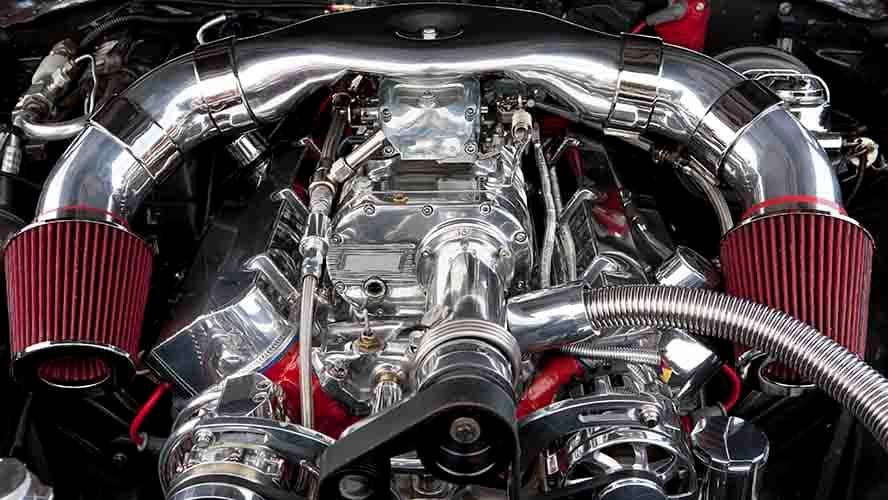Your car’s engine performance is the soul of its driving experience. It determines how fast your car goes, how smoothly it runs, how much fuel it uses, and how it responds when you hit the gas. Whether you’re a car enthusiast, a mechanic, or just a vehicle owner looking to understand your ride better, this guide will take you deep into the world of engine performance — and how to make the most of it.
🧠 What Does “Car Engine Performance” Actually Mean?
In simple terms, car engine performance refers to how effectively the engine converts fuel into mechanical energy and how efficiently that power is used to drive the wheels. But there’s more to it than just speed.
Here are the key aspects that define engine performance:
- Horsepower: The raw power output, usually measured in HP or kW.
- Torque: The engine’s pulling force, especially important for acceleration and load carrying.
- Fuel Efficiency: How well the engine uses fuel (measured in MPG or KM/L).
- Throttle Response: How quickly the engine responds when you press the accelerator.
- Engine Smoothness: Lack of vibration, knocking, or hesitation.
- Reliability: Consistent performance under different conditions.
A well-performing engine combines power, responsiveness, and efficiency — all without sacrificing reliability or safety.
⚙️ Core Factors That Influence Engine Performance

Understanding what impacts your engine’s output helps you make better maintenance decisions and upgrade choices. Below are the major performance influencers:
🔸 1. Air-Fuel Mixture
The ideal air-fuel ratio (AFR) for combustion is about 14.7:1 for petrol engines. If the mix is too rich (more fuel) or too lean (more air), it can affect power and fuel consumption.
🔸 2. Compression Ratio
A higher compression ratio generally increases power but can cause knocking unless premium fuel is used. Modern engines with variable compression adjust dynamically for performance and efficiency.
🔸 3. Cylinder Count and Displacement
More cylinders and larger displacement (e.g., 2.0L vs 1.5L) typically mean more power — but they may also increase fuel usage.
🔸 4. Forced Induction
Turbochargers and superchargers force more air into the engine, dramatically increasing horsepower without increasing engine size.
🔸 5. Ignition System
Advanced spark timing, powerful coils, and quality spark plugs lead to more complete combustion and better engine performance.
🔸 6. Exhaust Flow
A free-flowing exhaust allows gases to exit faster, reducing back pressure and improving power delivery.
🔸 7. ECU Mapping (Engine Tuning)
The Engine Control Unit (ECU) manages everything from fuel injection to ignition timing. Tuning or remapping can unlock better performance for your specific driving needs.
🔧 Practical Ways to Improve Car Engine Performance
Looking to get more power or better fuel economy from your car? These techniques and upgrades can help:
✅ 1. Regular Maintenance is Key
Routine services like oil changes, air filter replacements, and spark plug checks are crucial. A clean engine runs more efficiently and lasts longer.
✅ 2. Upgrade the Air Intake
Cold air intakes bring cooler, denser air into the engine, improving combustion and increasing horsepower.
✅ 3. Performance Exhaust System
Installing a cat-back exhaust or high-flow muffler improves airflow and reduces engine strain, especially on high-revving engines.
✅ 4. ECU Remapping or Tuning
Customizing your ECU settings can optimize performance based on your fuel type, climate, and driving style.
✅ 5. High-Performance Fuel Injectors
More precise fuel injection enhances combustion, boosting both power and efficiency.
✅ 6. Reduce Unnecessary Weight
Shedding extra weight (like roof racks, spare tires, or unused seats) improves acceleration and handling — even if just slightly.
✅ 7. Use Premium Fuel (When Required)
High-performance engines often benefit from premium fuel, which resists knocking and improves power output.
✅ 8. Keep Tires Properly Inflated
This may seem unrelated, but engine power is transferred to the road through your tires. Low pressure causes rolling resistance, making the engine work harder.
⚠️ Common Signs of Poor Engine Performance

Ignoring early symptoms of a struggling engine can lead to major repairs. Watch out for:
- Slow or delayed acceleration
- Poor fuel mileage
- Rough idling or vibrations
- Check engine light
- Unusual engine noise (knocking, ticking)
- Excessive smoke from exhaust
If you notice any of these signs, it’s time for a diagnostic checkup.
🚗 Performance Upgrades Worth Investing In
Want to take your car’s performance to the next level? Consider these upgrades:
- Cold Air Intake System
- High-Flow Air Filter (K&N style)
- ECU Tuning or Performance Chips
- Aftermarket Exhaust (Cat-back or headers)
- Turbocharger/Supercharger Kits
- Upgraded Intercooler
- Lightweight Flywheel or Pulleys
- Performance Spark Plugs & Ignition Coils
Remember: Not all cars will respond equally to these mods. Always check compatibility and consult a tuning expert.
⚖️ Balancing Power and Fuel Economy
It’s a myth that better engine performance always means worse fuel economy. With modern technologies like:
- Direct Injection
- Variable Valve Timing (VVT/VTEC)
- Turbocharging
- Start-Stop Systems
You can enjoy powerful engines that are also surprisingly efficient. Many automakers today design engines to balance performance with eco-friendliness.
🔮 Future of Car Engine Performance
As the automotive world transitions toward electric vehicles (EVs), traditional internal combustion engines (ICEs) are becoming more refined. Trends include:
- Mild Hybrid Systems (MHEV): Boost engine power and efficiency using electric motors.
- Cylinder Deactivation: Runs fewer cylinders when power isn’t needed.
- Advanced Turbocharging: Twin-scroll and electric turbos improve response and efficiency.
- AI-Based Engine Management: Future ECUs may adapt in real-time to driver habits and conditions.
FAQ’s
1. How can I check if my car engine is performing well?
You can monitor engine performance by checking for smooth acceleration, good fuel economy, quick throttle response, and absence of unusual noises or vibrations. Diagnostic tools like an OBD scanner can also help identify hidden engine issues.
2. Does using premium fuel improve engine performance?
Premium fuel can improve performance, but only in engines designed for high-octane fuel. Using it in regular engines usually offers no noticeable benefit and may be a waste of money.
3. What are the best upgrades to improve car engine performance?
Top upgrades include a cold air intake, performance exhaust, ECU tuning, and high-flow air filters. These modifications can enhance power, throttle response, and fuel efficiency.
4. Why does my car feel sluggish even after regular servicing?
A sluggish engine may result from clogged air filters, a dirty throttle body, worn spark plugs, or outdated ECU software. Even with regular servicing, performance parts can degrade over time.
5. Can driving habits affect engine performance?
Yes, aggressive driving, frequent short trips, and skipping warm-up time can reduce engine efficiency and lifespan. Smooth driving with regular maintenance keeps the engine in top shape.
Final Thoughts
Car engine performance isn’t just about how fast you can go — it’s about how efficiently your car uses fuel, how reliably it runs, and how it responds to your driving input. Whether you’re looking to improve speed, save fuel, or extend engine life, a deeper understanding of engine performance puts you in control. With the right maintenance and upgrades, you can enjoy smoother rides, better fuel economy, and enhanced driving fun — all while protecting your investment.




